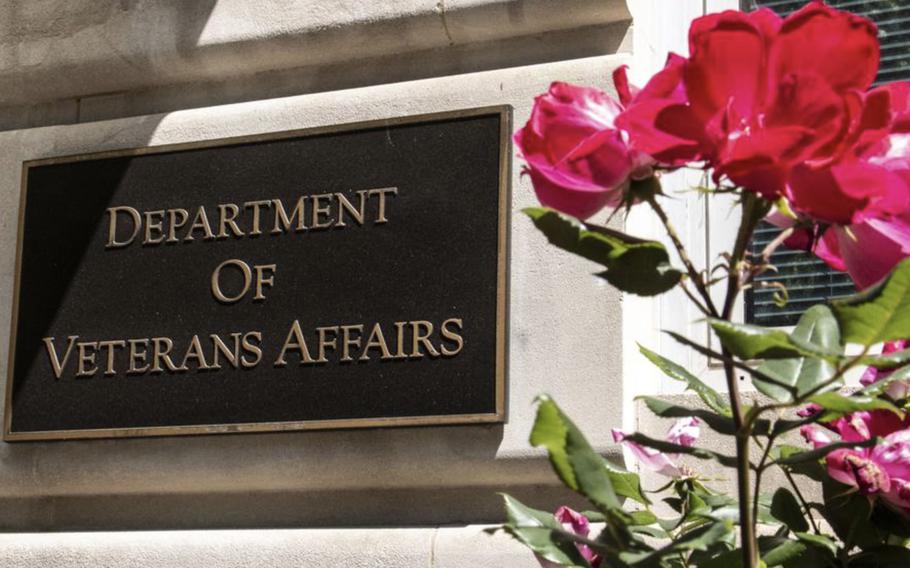
Veterans advocacy groups on Wednesday urged House lawmakers to update eligibility rules and payment rates for a little-known program that provides tax-free monthly benefits to veterans who are unable to work but who have not received a 100% disability rating from the Department of Veterans Affairs. (Stars and Stripes)
WASHINGTON — Veterans advocacy groups on Wednesday urged House lawmakers to update eligibility rules and payment rates for a little-known program that provides tax-free monthly benefits to veterans who are unable to work but do not receive a 100% disability rating from the Department of Veterans Affairs.
“Veterans return [from combat] “The situation has changed. They need resources to thrive and survive. Ensuring their survivability is the least we can do,” Michael Figlioli, director of national veterans services at the Veterans of Foreign Wars, said during a hearing of the House Committee on Veterans Affairs’ Subcommittee on Disability Assistance and Memorial Issues.
Figlioli and other veterans advocacy groups said the “individual unemployment” program, which provides much-needed financial assistance when veterans don’t qualify for full VA disability benefits, needs a major overhaul and updating by Congress to address compensation levels and eligibility criteria that have remained unchanged since its establishment in the 1940s.
Under this program, veterans are eligible to receive full (100%) of their VA disability benefits by providing evidence of at least a five-year work history that shows they had trouble finding or keeping employment. According to the VA, veterans must prove that a service-connected illness or injury contributed to their inability to work.
For fiscal year 2024, the program will pay qualifying veterans a tax-free benefit of $3,800 per month.
More than 377,000 veterans were compensated through the program in 2023, receiving a total of $7 billion in monthly payments and other benefits, according to the VA.
Ron Burke, deputy assistant secretary for policy and oversight at the VA, said the Individual Unemployment Compensation program provides full disability compensation to veterans who are unable to work but who have not reached a 100 percent disability rating.
To qualify for the program, veterans need only demonstrate a minimum of 60% disability for a single disability and 70% disability for two or more disabilities.
Rep. Morgan Luttrell (R-Texas), the subcommittee chairman, said the compensation is intended to “fully restore veterans’ lives” by recognizing and paying for expected earnings losses due to service-related injuries and illnesses, but he also said the program would pay everyone the same amount and would not vary based on education or work history that indicates earning potential.
“We want to make sure that this program is properly supporting deserving veterans and their families,” he said.
Congress needs to start considering increasing compensation beyond the annual cost-of-living adjustment, said Rep. Chris Pappas, D-N.H.
“I appreciate that a hearing was held to shine a spotlight on this little-known program and shed light on how the VA can help veterans who are unable to work or who want to rejoin the workforce but need assistance,” he said. “But I don’t think the rates are high enough.”
Pappas also said the disability rating schedule is too rigid when the degree of disability varies from person to person.
“Two veterans may experience the same disability differently,” he said.
Marquis Barefield, deputy director of national legislative affairs for the American Veterans Disability Association, said the compensation paid to veterans in the program is about 25% lower than the average U.S. worker’s salary of $59,000.
“It’s time to change that,” he said.
Michael Stoddard, national services director for the Wounded Warrior Project, said a survey of the group’s members found that most felt the $3,800-a-month compensation was not enough to meet their financial obligations.
Veterans groups also told lawmakers they oppose requiring veterans to undergo an evaluation of their job skills, known as a vocational assessment, in order to qualify for compensation.
“Most veterans want to work,” Barefield said.
He said the requirement would place an undue burden on veterans who are capable of performing their duties but are unable to find employment because of mental or physical disabilities caused by their military service.
Veterans groups also said they would oppose efforts by some lawmakers to scale back or eliminate programs for veterans who receive Social Security benefits at the federal retirement age of 67.
The groups said veterans who receive individual unemployment compensation have service-connected disabilities that prevent them from working, from contributing fully to the Social Security system and limit their compensation after they retire.

